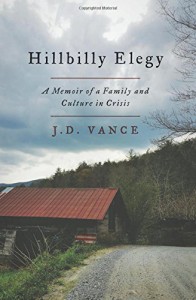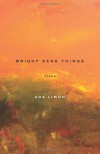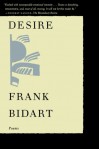1
Followers
29
Following
Seanachie: A Boston Irish Storyteller and Part-Time Shaman
Books about place, magic, Faeries, Ireland, sex, God, and love
Currently reading
New Orleans as It Was
New Orleans after the Civil War
Visions and Beliefs in the West of Ireland (complete: First & Second Series)
Bright Dead Things: Poems
The Subtle Art of Not Giving a F*ck: A Counterintuitive Approach to Living a Good Life
Desire: Poems
Selected Poems 1976-2012
An Anthology of Modern Irish Poetry
I Am An Executioner: Love Stories
An Artist of the Floating World
Hillbilly Elegy: A Memoir of a Family and Culture in Crisis
 JD Vance grew up as a hillbilly (his own term) with a spiritual home in a Kentucky holler and an actual home (actually, multiple homes due to a peripatetic drug-abusing serially marrying mother) in southwestern Ohio. From these humble origins, he went on to the Marine Corps, a successful undergraduate career, a JD from Yale Law School, and a job at a big law firm. He attributes his success neither to government programs or policy (indeed, he indicts the same on many occasions) nor (thankfully) to his own pluck, brains and pioneering American spirit. Instead, in a nutshell, he posits (to borrow a phrase) that it “takes a village” to raise a child to break the cycle of rustbelt and Appalachian poverty--in his case, he evokes a hillbilly community like his consisting of a pair of fearless engaged grandparents, a heroic sister, and excellent mentors.
JD Vance grew up as a hillbilly (his own term) with a spiritual home in a Kentucky holler and an actual home (actually, multiple homes due to a peripatetic drug-abusing serially marrying mother) in southwestern Ohio. From these humble origins, he went on to the Marine Corps, a successful undergraduate career, a JD from Yale Law School, and a job at a big law firm. He attributes his success neither to government programs or policy (indeed, he indicts the same on many occasions) nor (thankfully) to his own pluck, brains and pioneering American spirit. Instead, in a nutshell, he posits (to borrow a phrase) that it “takes a village” to raise a child to break the cycle of rustbelt and Appalachian poverty--in his case, he evokes a hillbilly community like his consisting of a pair of fearless engaged grandparents, a heroic sister, and excellent mentors.For Vance, the key is that hillbillies (and the poor blacks to whom he frequently compares them) have surrendered a sense of agency -- that anything they may do matters or is effective or is consequential. And this is key: Vance sees them as agents who have surrendered agency, not people from whom agency has been taken by (name your villain) oppression, racism, lack of opportunity, or government programs creating a cycle of laziness.
This is a hard book to like. Putting aside the inevitably smarminess of a 31-year-old writing a memoir and purporting to have answers for the dark, complicated and even byzantine personalities among whom he grew up, and the very selective recourse to certain types of supporting scholarship and research, Vance unearths but does not quite address one theme that seems to animate both him in his success as well as those he left behind: rage. Blinding, inexplicable rage.
His own rage he attributes to a hillbilly ethos and machismo as well as to ACEs (adverse childhood experiences). But rage seems to permeate every character he evokes. That rage may be effective in achieving its short term goals (often pride-based), but often Vance depicts an impotent rage that expresses itself in self-destructive choices; suspicion of media, churches, and other institutions; and hair-trigger violence. Vance continues to experience it even after he has achieved the American dream. It is pervasive and Vance does not really investigate its importance to the hillbilly predicament. How much of this rage is the cause of economic distress (and economic inequality made painfully visible and immediate by television and the media) or its result is not made clear by Hillbilly Elegy.
Vance is clearly smart, clearly driven, and clearly the beneficiary of some lucky breaks and good mentors. He wants to restore agency to hillbilly people -- not entirely blaming them from bad choices but also not relieving them from responsibility. What the book lacks (and perhaps this is too much to ask of a memoir) is a prescription for tempering the rage and fostering the sort of hillbilly community Vance thinks is essential.











